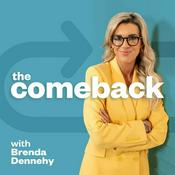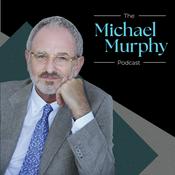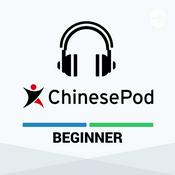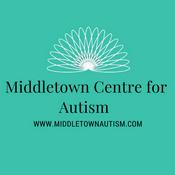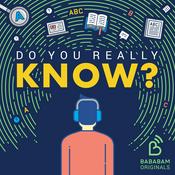284 episodes
- Send a text
The biology of fat tissue, estrogen's role in metabolism and health, and how exercise interacts with these processes, especially during menopause.
TOPICS DISCUSSED:
Adipose tissue basics: White fat primarily stores energy in large lipid droplets, while brown fat burns fatty acids for heat via high mitochondrial density; white fat can “brown” with exercise or certain foods like capsaicin.
Fat distribution & health: Subcutaneous fat (under skin) is more insulin-sensitive and less problematic than visceral fat (around organs), which links to metabolic issues; females store more subcutaneously pre-menopause, shifting to visceral post-menopause.
Estrogen signaling: Estradiol binds nuclear and membrane receptors to regulate gene expression and mitochondrial function; it enhances insulin sensitivity and browning in fat cells, with receptors like ER-alpha feminizing fat distribution.
Fat storage: Fat cells enlarge (hypertrophy) more than multiply in obesity, leading to hypoxia, inflammation, and insulin resistance; excess fatty acids spill to liver and muscle, worsening metabolic dysfunction.
Menopause effects: Estrogen drop causes visceral fat gain, reduced energy expenditure, insulin resistance, and higher metabolic disease risk; symptoms include hot flashes and reduced exercise motivation, modeled in rodents via ovary removal.
Exercise & estrogen links: Exercise boosts estrogen receptor expression and mitochondrial density in fat, mimicking estrogen’s browning effects; synergism may explain reduced exercise responsiveness post-menopause.
Brain-fat connections: Estrogen in the nucleus accumbens influences exercise motivation and fat browning; manipulations there alter running behavior and adipose metabolism in rodents.
ABOUT THE GUEST: Victoria Vieira-Potter, PhD leads a lab at the University of Missouri, studying how estrogen and exercise influence adipose cells.
RELATED EPISODE:
M&M 174 | Adipose Tissue & Body Fat: Obesity, Insulin, Leptin, Fertility, Weight Loss & GLP-1 Drugs | Sean Hartig
Support the show
Health Products by M&M Partners:
SporesMD: Premium mushrooms products (gourmet mushrooms, nootropics, research). Use code 'nickjikomes' for 20% off.
Lumen device: Optimize your metabolism for weight loss or athletic performance. MINDMATTER gets you 15% off.
AquaTru: Water filtration devices that remove microplastics, metals, bacteria, and more from your drinking water. Through link, $100 off AquaTru Carafe, Classic & Under Sink Units; $300 off Freestanding models.
Seed Oil Scout: Find restaurants with seed oil-free options, scan food products to see what they’re hiding, with this easy-to-use mobile app.
KetoCitra—Ketone body BHB + electrolytes formulated for kidney health. Use code MIND20 for 20% off any subscription (cancel anytime)
For all the ways you can support my efforts - Send us a text
The brain's mysterious claustrum region, its role in cognitive flexibility, and how substances like alcohol and psychedelics affect neural circuits and behavior. Not medical advice.
TOPICS DISCUSSED:
Cerebral cortex structure: Described as a six-layered structure with pyramidal neurons and inhibitory interneurons; information flows between layers and regions to process sensory input and enable complex behaviors.
Claustrum anatomy & connectivity: A sheet-like subcortical structure embedded in white matter, bidirectionally connected to cortical areas, especially prefrontal regions in rodents, with broader connections in primates and humans suggesting an integrative role.
Claustrum function in cognition: Experiments show claustrum activation during task switches from easy to demanding modes, synchronizing cortical networks via inhibition and rebound excitation, potentially enabling flexible behavior.
Mouse models in neuroscience: Mice are used for genetic tractability to manipulate and monitor specific circuits, revealing claustrum’s role in vigilance tasks but not simple ones.
Alcohol’s effects on brain circuits: Chronic alcohol promotes inflexible behaviors by altering striatal interneurons and inhibitory inputs, leading to compulsive drinking despite aversive consequences.
Psychedelics & brain networks: Psilocybin disrupts default mode and other networks, inhibits claustrum via serotonin 1B receptors, with effects persisting 24 hours, possibly contributing to therapeutic benefits.
Evolution of claustrum: Connectivity expands from rodents to humans, shifting from cognitive-specific to broader network control, including anti-correlated states like default mode versus task-engaged.
Integration of claustrum & basal ganglia: Claustrum funnels prefrontal signals to basal ganglia for action selection; alcohol may impair this, exacerbating inflexibility in addiction.
ABOUT THE GUEST: Brian, PhD is a professor in the Department of Pharmacology and Physiology at the University of Maryland School of Medicine, where he leads a neuroscience lab studying brain circuits underlying flexible and inflexible behaviors using mouse models, with a focus on alcohol use disorder.
Support the show
Health Products by M&M Partners:
SporesMD: Premium mushrooms products (gourmet mushrooms, nootropics, research). Use code 'nickjikomes' for 20% off.
Lumen device: Optimize your metabolism for weight loss or athletic performance. MINDMATTER gets you 15% off.
AquaTru: Water filtration devices that remove microplastics, metals, bacteria, and more from your drinking water. Through link, $100 off AquaTru Carafe, Classic & Under Sink Units; $300 off Freestanding models.
Seed Oil Scout: Find restaurants with seed oil-free options, scan food products to see what they’re hiding, with this easy-to-use mobile app.
KetoCitra—Ketone body BHB + electrolytes formulated for kidney health. Use code MIND20 for 20% off any subscription (cancel anytime)
For all the ways you can support my efforts Psychedelic Neurobiology: Sex-Specific Effects of MDMA & Psilocybin in Addiction & Reward Behavior
05/2/2026 | 1h 10 mins.Send us a text
Pharmacology & neurobiology of psychedelics & MDMA, focusing on isomers, sex-specific effects, and mechanisms in animal models. Not medical advice.
TOPICS DISCUSSED:
Biased agonism: Different drugs activate the same receptor (e.g., 5-HT2A) but trigger varied intracellular pathways, explaining why LSD is psychedelic while similar lisuride is not.
Enantiomers & isomers: Mirror-image versions of drugs like MDMA (S and R forms) and LSD (four isomers) often produce distinct effects; only one LSD isomer is psychedelic, for example.
MDMA isomer effects: S-MDMA induces stronger head twitches (psychedelic proxy) via serotonin release, and increases dendritic spines in male mice but not females; R-MDMA has somewhat different effects.
Sex-specific drug responses: In mice, females show stronger psychedelic effects (head twitches) from psilocybin and DOI at the same dose, but males exhibit greater post-acute benefits like reduced opioid withdrawal.
Psilocybin in opioid addiction models: A single dose reduces place preference for oxycodone and withdrawal symptoms in male mice more than females, with opposite spine density effects in reward-related brain areas.
Mechanisms beyond 5-HT2A: Psychedelics involve other receptors like metabotropic glutamate receptors, forming dimers with 5-HT2A to enable dual signaling pathways; effects in subcortical regions like nucleus accumbens are 5-HT2A-independent.
Clinical implications: Street MDMA may vary in S/R ratios, affecting experiences; clinical trials often use racemic mixtures without weight-adjusted dosing, potentially missing sex differences.
ABOUT THE GUEST: Javier Gonzalez-Maeso, PhD is a professor of pharmacology and toxicology at Virginia Commonwealth University, with a PhD in medicine from Spain focused on G-protein coupled receptors and human brain studies in depression and addiction.
RELATED EPISODE:
M&M 230 | Psilocybin & MDMA: Inflammation, Stress & Brain-Body Communication | Michael Wheeler
Support the show
Health Products by M&M Partners:
SporesMD: Premium mushrooms products (gourmet mushrooms, nootropics, research). Use code 'nickjikomes' for 20% off.
Lumen device: Optimize your metabolism for weight loss or athletic performance. MINDMATTER gets you 15% off.
AquaTru: Water filtration devices that remove microplastics, metals, bacteria, and more from your drinking water. Through link, $100 off AquaTru Carafe, Classic & Under Sink Units; $300 off Freestanding models.
Seed Oil Scout: Find restaurants with seed oil-free options, scan food products to see what they’re hiding, with this easy-to-use mobile app.
KetoCitra—Ketone body BHB + electrolytes formulated for kidney health. Use code MIND20 for 20% off any subscription (cancel anytime)
For all the ways you can support my effortsAMPK: Biochemistry of Nutrient Sensing, Fasting, Cell Repair & Growth | Greg Steinberg
25/1/2026 | 1h 20 mins.Send us a text
The AMP kinase pathway's role in cellular energy sensing, nutrient allocation, and its connections to health practices like fasting, exercise, and diet.
TOPICS DISCUSSED:
Cellular energy basics: ATP/ADP/AMP as energy currencies; AMP kinase activates on low ATP to conserve and redirect resources, like a budget manager.
AMP kinase mechanics: Heterotrimeric enzyme phosphorylating 100+ substrates; localizes dynamically in cytosol, mitochondria, nucleus to integrate signals.
Nutrient detection: Senses fatty acids in fasting/ketogenic states, boosting fat oxidation and mitochondria independent of energy drops.
Fasting/exercise impacts: Elevate AMP kinase for mitophagy, better fuel switching; mimic historical scarcity absent under modern constant feeding.
mTOR relationship: AMP kinase inhibits mTOR to stop growth in low energy states; feedback loop disrupted by abundance, promoting tissue buildup.
Disease links: Low AMP kinase in obesity/diabetes reduces flexibility; activation prevents cancer but may aid tumor survival in therapy.
Drugs/diets: Metformin and GLP-1s like Ozempic activate AMP kinase for glucose control/weight loss; ketogenic diets activate at intermediate levels for fat efficiency.
ABOUT THE GUEST: Gregory Steinberg, PhD is a Professor of Medicine at McMaster University and co-directs the Centre for Metabolism, Obesity, and Diabetes Research, focusing on cellular energy sensors like AMP kinase.
RELATED EPISODE:
M&M 260 | Energy Resistance Principle in Life, Healing & Disease | Martin Picard & Nirosha Murugan
Support the show
Health Products by M&M Partners:
SporesMD: Premium mushrooms products (gourmet mushrooms, nootropics, research). Use code 'nickjikomes' for 20% off.
Lumen device: Optimize your metabolism for weight loss or athletic performance. MINDMATTER gets you 15% off.
AquaTru: Water filtration devices that remove microplastics, metals, bacteria, and more from your drinking water. Through link, $100 off AquaTru Carafe, Classic & Under Sink Units; $300 off Freestanding models.
Seed Oil Scout: Find restaurants with seed oil-free options, scan food products to see what they’re hiding, with this easy-to-use mobile app.
KetoCitra—Ketone body BHB + electrolytes formulated for kidney health. Use code MIND20 for 20% off any subscription (cancel anytime)
For all the ways you can support my effortsFarm Food: Soy in Animal Feed, Pesticides, Phytoestrogens, Seed Oils & Regenerative Farming
19/1/2026 | 1h 36 mins.Send us a text
How industrial farming, seed oils, soy, and pesticides impact food nutrition and health. Not medical advice.
TOPICS DISCUSSED:
Soy’s rise in farming: Originating from paint uses and wartime chemicals, soy became dominant due to subsidies and large-scale farming practices, but introduces high PUFAs, phytoestrogens, and pesticides into animal feeds.
Feed’s impact on eggs: Chicken feeds high in soy and corn raise linoleic acid levels in eggs compared to low-soy alternatives; low-PUFA eggs improve digestibility for many.
PUFAs & health effects: Feeding PUFAs fattens animals faster and disrupts human gut lining and metabolism; body fat composition changes take time, linking to chronic issues like low energy.
Phytoestrogens in soy: These compounds pass into animal products, affecting estrogen signaling and gut health; mainstream nutrition often overlooks their risks despite historical low exposure.
Dairy variations: Raw milk retains lactoferrin for iron regulation and gut support, plus enzymes and probiotics destroyed in pasteurization; it may resolve dairy intolerances for some.
Regenerative farming model: Armstrong’s cooperative emphasizes traditional feeds to “resaturate” foods, reducing PUFAs; supports small farms amid declining farm numbers.
Ancestral diets insight: Traditional diets vary but share low PUFA levels, avoiding modern chronic illnesses tied to industrial fats.
ABOUT THE GUEST: Ashley Armstrong, PhD co-founded Angel Acres Farm in Michigan and now runs Nourish Food Club, a cooperative of small farms producing low-PUFA, soy-free animal foods.
RELATED EPISODE:
M&M 273: Nutrition Content of Animal & Plant Foods: Beef, Plant-Based Meat, Raw vs. Processed Milk
Support the show
Health Products by M&M Partners:
SporesMD: Premium mushrooms products (gourmet mushrooms, nootropics, research). Use code 'nickjikomes' for 20% off.
Lumen device: Optimize your metabolism for weight loss or athletic performance. MINDMATTER gets you 15% off.
AquaTru: Water filtration devices that remove microplastics, metals, bacteria, and more from your drinking water. Through link, $100 off AquaTru Carafe, Classic & Under Sink Units; $300 off Freestanding models.
Seed Oil Scout: Find restaurants with seed oil-free options, scan food products to see what they’re hiding, with this easy-to-use mobile app.
KetoCitra—Ketone body BHB + electrolytes formulated for kidney health. Use code MIND20 for 20% off any subscription (cancel anytime)
For all the ways you can support my efforts
More Education podcasts
Trending Education podcasts
About Mind & Matter
Whether food, drugs or ideas, what you consume influences who you become. Learn directly from the best scientists & thinkers alive today about how your mind-body reacts to what you feed it.The weekly M&M podcast features conversations with the most interesting scientists, thinkers, and technology entrepreneurs alive today.Not medical advice.At M&M, we are interested in trying to figure out how things work, not affirming our existing beliefs. We prefer consulting primary rather than secondary sources and independent rather than institutional voices. If we encounter uncomfortable truths or the evidence suggests unfashionable ideas may be valid, so be it.As the host, my aim is to help you better understand how the body & mind work by curating & synthesizing information in a way that yields science-based insights that you can choose to use or disregard in your own life. Taking ownership of your health starts with taking ownership of your information diet.I am motivated to connect the dots and distill general principles from what I learn, preferring to ask questions and play devil’s advocate to debating or incessantly pushing my own viewpoint.My beliefs:Taking ownership of your health starts with taking ownership of your information diet.All knowledge is provisional and we must work hard to prevent ourselves from becoming attached to our favorite ideas & preferred conclusions.Wisdom comes from an iterative, trial-and-error process of learning and unlearning. Letting go of pre-conceived notions can be painful, but pain is information.Sometimes modern discoveries teach us we must unlearn received wisdom. Other times, modern information overload & historical chauvinism cause us to forget ancient wisdom which stills applies. The framework for learning that I embody is inspired by three Ancient Greek maxims inscribed in the Temple of Apollo at Delphi:“Γνῶθι σεαυτόν” (Know thyself)“Μηδὲν ἄγαν” (Nothing in excess)“Ἐγγύα πάρα δ Ἄτα” (Certainty brings insanity)
Podcast websiteListen to Mind & Matter, The Daily Stoic and many other podcasts from around the world with the radio.net app

Get the free radio.net app
- Stations and podcasts to bookmark
- Stream via Wi-Fi or Bluetooth
- Supports Carplay & Android Auto
- Many other app features
Get the free radio.net app
- Stations and podcasts to bookmark
- Stream via Wi-Fi or Bluetooth
- Supports Carplay & Android Auto
- Many other app features


Mind & Matter
Scan code,
download the app,
start listening.
download the app,
start listening.







